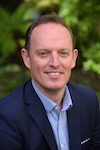In June 2020, Debbie Hopkins, Associate Professor in the Department for Continuing Education and the School of Geography and Environment, University of Oxford, took over as Editor-in-Chief of the AAG Review of Books, replacing Founding Editor Kent Mathewson. Published quarterly, The AAG Review of Books highlights recent texts in geography and related disciplines. The journal features book reviews by geographers and other scholars at various points of their academic careers.
We recently asked Debbie and Neha Arora, PhD Candidate in Human Geography, Stockholm University, and Editorial Assistant at The Review, to talk with us about their work this past year. This interview has been edited for clarity and brevity.
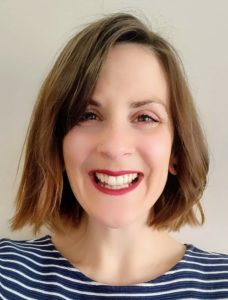
Q: What were you expecting from The AAG Review of Books, and what has surprised you?
Debbie: I find book reviews very interesting. As I expected, I have experienced the submissions as an art form, a particular form of writing that doesn’t have to be formulaic. Geographers tend to write more like humanists, a little poetic. Storytelling is something geographers do quite naturally, but we know we have to write a certain way to be published.
The Review allows you to have fun with yourself. That’s exciting for academics. You’re reviewing this book but how does it fit with the world?
Getting into it, I had very big shoes to fill. I was intimidated to meet Kent. He was very generous and supportive as I got going. Something that surprised me was the generosity with which reviewers engaged with the material. Reviewing is quite a selfless act. Particularly as I started this in the pandemic, dealing with that, taking classes online, homeschooling, dealing with personal tragedies. For people to say, yes I will do that. Across career stages, quite phenomenal. It’s no small feat, but people seem to get a lot out of it.
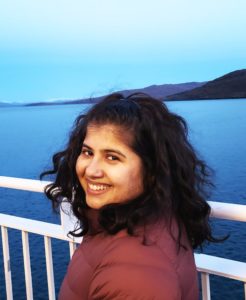
Neha: Absolutely everything has been a pleasant surprise! When I joined, I was expecting to be limited to an administrative role, especially since I did not have much experience in publishing. But Debbie encouraged me to be a part of the entire process, opening so many avenues to learn and grow. This has allowed me to expand networks, get a deeper look into the academic world as well as the publishing industry, read across disciplines and hone my editing and writing skills. Most exciting, however, has been trying to figure out new ways of broadening the scope of the journal. I never expected to be a part of these conversations. I was even surprised by how smoothly our little team works across continents, with Debbie in the UK, Jennifer in the US, and me first in South Africa and then in Sweden. I am also incredibly lucky to have these amazing women as my mentors.
Q: Talk to us a little about the three different review types that the Review publishes?
Debbie: The book review essay is our space to cultivate and have that additional benefit for the person reviewing, able to communicate more of their own perspective, ideas, and research. Also, it includes a variety of formats – often involving two or more books discussed in relation to one another. We like for reviewers to explore the relationships among texts, and sometimes bring in their teaching experiences or professional experiences. The book review is a standard review. That is the submission we see the most. Even this quite traditional form – one book, 1,500 words – can show a surprising variety. The forum tends to spring from an author-meets-critic type event at conferences. A group of reviewers interrogate the book, ask questions, challenge, and then the author responds, creating a nice dialogue.
Q: What are some changes and new approaches you’ve been trying out this past year?
Neha: Under Debbie’s guidance, we started this year with a very clear vision and focus – driving diversification and inclusion across the board. We looked at not only the kind of books we were sourcing, but also sourcing them from beyond ‘main’ publishers and Anglophone geography, as well as looking beyond just books and reviewing other media such as films, or complementing a book review by including content from a podcast. Equally important has been a focused effort to seek a diverse range of reviewers across multiple axes (ECRs, gender, geography). We are also keen on empowering reviewers to engage in new ways with the books, by encouraging creativity and flexibility with the format of the reviews.
This is of course work in progress and such an immense learning experience. I never wholly appreciated the challenges in achieving these extremely important – and timely – objectives, not only at the journal, but across academia. Something as simple as the accessibility of university websites beyond the Anglophone world makes it very challenging to reach out to new potential reviewers. Even the more popular universities do not have pages for their PhD students or ECRs. Similar issues exist with geography associations elsewhere and smaller publishing houses. It’s understandable that they do not have the resources to expand their online presence. And it just means we need to find other ways, and change will happen more slowly.
Debbie: Right now, we are reliant on what comes to us, but we need to go beyond the languages that Neha and I can engage with. If there is a review you’d like to write because you think an English-speaking audience would be interested, we want to know. We will remain an English-speaking journal, but need to enter into a dialogue.
We also want to reach beyond books and review other media – I think it is important that we engage with those. Books will remain very important for our discipline. Most recently we had a forum for a documentary. I can see how it will be very important teaching material, as well.
We did a review of a book about a British TV show – Landscapes of Detectorists, which offered interesting commentary on citizen science and the public reach. It’s important that our reviews think about the power of the spoken word, as well as written.
Neha: I have to say here that it is so incredibly exciting to work with Debbie on this – she is always in favor of pushing boundaries, is always open to discussing new ideas and constantly encourages curiosity. She is providing me with a roadmap to be the kind of academic I hope to be.
Q: Can you talk a little about the freedoms and possibilities for an author writing for the Review?
Debbie: It would be interesting to have some conversations about certain kinds of books that are both good for interest in geography and perhaps less valuable for the actual discipline. People who work in policy don’t read what we think is policy. Some of the issue is managing that, finding it. I’d love for geographers to all have a conversation that brings people together. An advantage to the Review of Books is that it’s not peer-reviewed. Reviews can get published relatively quickly. We can be quite topical. It’s only a few months to publication, which is really quite unusual for academic publishing! We are never going to be an empirical research journal.
We want The Review of Books to welcome young geographers [as reviewers and as part of the] network, part of dialogue. Some of the great relationships I’ve had are because I’ve written with people, been part of community. We are interested in getting to know people who are interested in ideas and contributing to the community in some way.
I envision the Review as a space to be working through ideas and concepts. A place where a reviewer has the freedom to speak. The articles are all free access after a year, and two articles per issue are open access right away.
Q: What is the “spark” you are looking for, either in a book, or in a writer, or both (in a submission)?
Neha: There is such a diversity in the reviews that we get and publish that it is hard to pinpoint one characteristic. But the reviews that I enjoy reading the most are the ones with a personal story. The reviews that go beyond describing the strengths and flaws of the book but describe how the reviewer connected with the book as a reader. This could be through an overlap with their own work, or how it brought back a memory from the field, or just an emotional response.
Debbie: Representing the diversity of the discipline is so important to me. So something I haven’t seen before, a book, author, a fresh take, someone who wants to review and speaks with passion. It’s finding that match…. Something that comes together and shows the really cool work geographers do. That real-worldness of our work. Geographers are interested in changing the world. When we see these reviews and this academic work being tied to tangible world events, that’s really special.
Q: How can someone submit their work?
Debbie: I’m very open to just an email. We are preparing a new submission page for later this year or early in 2022. Our current page on the AAG website has information and guidance on submitting.
Often the best reviews are the ones where the reviewer approaches us. Review essays are more difficult for us to solicit. It has to be a passion, so we have to rely on people to approach us, often because of a contemporary trigger (e.g., protest). Forums are very much the same.
For more information on submitting to the AAG Review of Books, see our page for the journal.
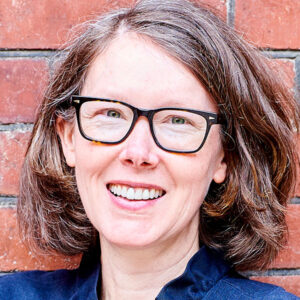
 Michaela Buenemann, incoming editor for Physical Geography, Earth, and Environmental Sciences, is professor and head of the Department of Geography and Environmental Studies at New Mexico State University. Her interdisciplinary, international, and collaborative work features contributions in GIS, remote sensing, spatial modeling, landscape ecology, and biogeography. She has published in a wide range of geography, environmental sciences, and GIScience journals, and her research has been funded by numerous state and federal agencies. In the classroom and field, she teaches an array of courses in physical geography, socio-environmental systems, field methods, geographic information science and technology, and geographic theory and research design. She has contributed to the discipline of geography in various roles, including chair of the Southwest Division of the American Association of Geographers, Southwest Regional Councilor of the American Association of Geographers, and Southwest Regional Councilor of Gamma Theta Upsilon.
Michaela Buenemann, incoming editor for Physical Geography, Earth, and Environmental Sciences, is professor and head of the Department of Geography and Environmental Studies at New Mexico State University. Her interdisciplinary, international, and collaborative work features contributions in GIS, remote sensing, spatial modeling, landscape ecology, and biogeography. She has published in a wide range of geography, environmental sciences, and GIScience journals, and her research has been funded by numerous state and federal agencies. In the classroom and field, she teaches an array of courses in physical geography, socio-environmental systems, field methods, geographic information science and technology, and geographic theory and research design. She has contributed to the discipline of geography in various roles, including chair of the Southwest Division of the American Association of Geographers, Southwest Regional Councilor of the American Association of Geographers, and Southwest Regional Councilor of Gamma Theta Upsilon.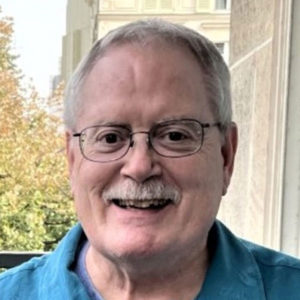 We are grateful to David R. Butler, outgoing editor for Physical Geography, Earth, and Environmental Sciences. Butler is the Regents’ Professor of Geography Emeritus in the Texas State University System and an AAG Fellow. His research interests include geomorphology, biogeography, natural hazards, mountain environments, and environmental change. In 2023, Butler was awarded the AAG Lifetime Achievement Award for his contributions to the discipline.
We are grateful to David R. Butler, outgoing editor for Physical Geography, Earth, and Environmental Sciences. Butler is the Regents’ Professor of Geography Emeritus in the Texas State University System and an AAG Fellow. His research interests include geomorphology, biogeography, natural hazards, mountain environments, and environmental change. In 2023, Butler was awarded the AAG Lifetime Achievement Award for his contributions to the discipline.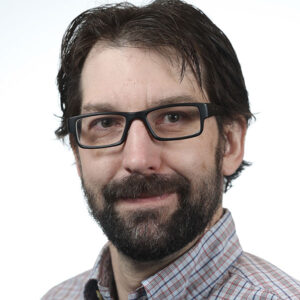
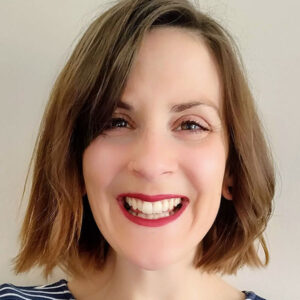 We express our gratitude to outgoing editor Debbie Hopkins, Associate Professor in Human Geography at the University of Oxford, who has steered the publication since June 2020. Along with editorial assistant Neha Arora, Hopkins worked to bring in book reviews that represent the diversity of the discipline and offer fresh perspectives, highlighting what she calls “that real-worldness of our work.”
We express our gratitude to outgoing editor Debbie Hopkins, Associate Professor in Human Geography at the University of Oxford, who has steered the publication since June 2020. Along with editorial assistant Neha Arora, Hopkins worked to bring in book reviews that represent the diversity of the discipline and offer fresh perspectives, highlighting what she calls “that real-worldness of our work.”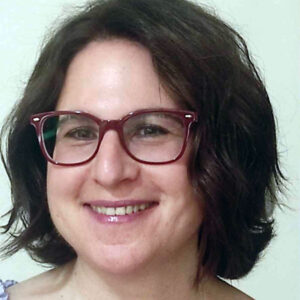 In January 2024, the AAG welcomes Anastasia Christou as the new
In January 2024, the AAG welcomes Anastasia Christou as the new 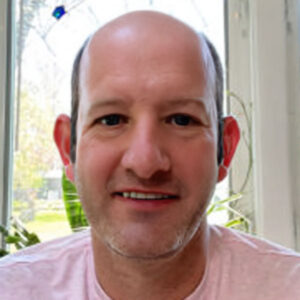 Inwood is a professor in the Department of Geography and The Rock Ethics Institute at the Pennsylvania State University. His research and teaching are focused on the social, political, and economic structures that perpetuate exploitation and injustice with a specific focus on the US South. His work explores racial capitalism and the broad trajectories of white supremacy. In addition, his work has engaged with the U.S. civil rights struggle and a broad understanding of the geography of the American Civil Rights struggle. His work has been funded by the National Science Foundation and his work has been recognized with several AAG honors including the Glenda Laws Award and the AAG’s media achievement award. He has authored or co-authored over fifty peer-reviewed journal articles and is co-editor of the volume Non-Killing Geographies: Violence, Space, and the Search for a More Humane Geography (Center for Global Non-Killing, 2011) and has a forthcoming co-edited book on Geographies of Justice (Bristol University Press 2024). He brings to his editorship at GeoHumanities an awareness of the intersection of geography, humanist value systems and human rights, politics, and history.
Inwood is a professor in the Department of Geography and The Rock Ethics Institute at the Pennsylvania State University. His research and teaching are focused on the social, political, and economic structures that perpetuate exploitation and injustice with a specific focus on the US South. His work explores racial capitalism and the broad trajectories of white supremacy. In addition, his work has engaged with the U.S. civil rights struggle and a broad understanding of the geography of the American Civil Rights struggle. His work has been funded by the National Science Foundation and his work has been recognized with several AAG honors including the Glenda Laws Award and the AAG’s media achievement award. He has authored or co-authored over fifty peer-reviewed journal articles and is co-editor of the volume Non-Killing Geographies: Violence, Space, and the Search for a More Humane Geography (Center for Global Non-Killing, 2011) and has a forthcoming co-edited book on Geographies of Justice (Bristol University Press 2024). He brings to his editorship at GeoHumanities an awareness of the intersection of geography, humanist value systems and human rights, politics, and history. Cresswell is Ogilvie Professor of Human Geography in the School of GeoSciences at the University of Edinburgh. His research focuses on geographies of place and mobility and their role in the constitution of social and cultural life. He is the author or editor of a dozen books and over 100 articles on the role of space, place, and mobility in social and cultural life. Cresswell is also a widely published poet with three collections – most recently Plastiglomerate (Penned in the Margins, 2020). His most recent academic book, Muybridge and Mobility (co-authored with John Ott) was published by the University of California Press in 2022.
Cresswell is Ogilvie Professor of Human Geography in the School of GeoSciences at the University of Edinburgh. His research focuses on geographies of place and mobility and their role in the constitution of social and cultural life. He is the author or editor of a dozen books and over 100 articles on the role of space, place, and mobility in social and cultural life. Cresswell is also a widely published poet with three collections – most recently Plastiglomerate (Penned in the Margins, 2020). His most recent academic book, Muybridge and Mobility (co-authored with John Ott) was published by the University of California Press in 2022.  Deborah Dixon is Professor of Geography at the University of Glasgow. Dixon’s internationally recognized work in feminist geopolitics was instrumental to the emergence of geohumanities as an inter-disciplinary field of research and practice. Her work cuts across scientific, artistic, and cultural categories to examine and imagine the ecological and social presence and futures of landscapes and places. Her collaborations include
Deborah Dixon is Professor of Geography at the University of Glasgow. Dixon’s internationally recognized work in feminist geopolitics was instrumental to the emergence of geohumanities as an inter-disciplinary field of research and practice. Her work cuts across scientific, artistic, and cultural categories to examine and imagine the ecological and social presence and futures of landscapes and places. Her collaborations include 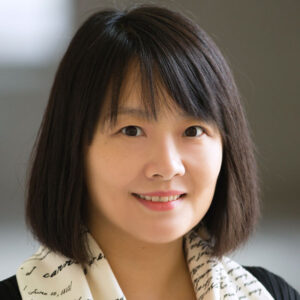 Guo Chen has been named the first Human Geography/Nature and Society editor for The Professional Geographer, inaugurating a new position at the journal. Chen will join current editor Heejun Chang, who will continue in his second term as editor, focusing on articles related to Geographic Methods/Physical Geography, Earth and Environmental Sciences.
Guo Chen has been named the first Human Geography/Nature and Society editor for The Professional Geographer, inaugurating a new position at the journal. Chen will join current editor Heejun Chang, who will continue in his second term as editor, focusing on articles related to Geographic Methods/Physical Geography, Earth and Environmental Sciences.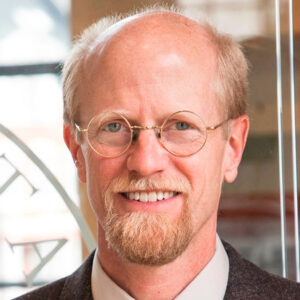 Adams is the longtime director of the Urban Studies Program at the University of Texas, first in the UT Department of Geography and the Environment now in the Department of American Studies. His service to AAG includes founding the Media Geography Specialty Group (now Media and Communication). From 2015 to 2020, he served as associate professor II at the University of Bergen, funded by the Research Council of Norway. In 2001, he was a Fulbright fellow at McGill University and University of Montreal, Quebec. His current research focuses on sociospatial and political aspects of digital media, digital humanities, and culturally specific understandings of environmental risk and climate change.
Adams is the longtime director of the Urban Studies Program at the University of Texas, first in the UT Department of Geography and the Environment now in the Department of American Studies. His service to AAG includes founding the Media Geography Specialty Group (now Media and Communication). From 2015 to 2020, he served as associate professor II at the University of Bergen, funded by the Research Council of Norway. In 2001, he was a Fulbright fellow at McGill University and University of Montreal, Quebec. His current research focuses on sociospatial and political aspects of digital media, digital humanities, and culturally specific understandings of environmental risk and climate change.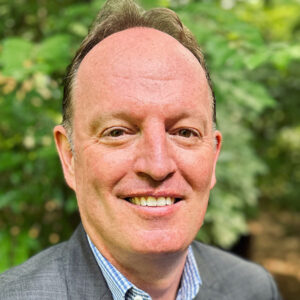 King is professor and head of the Department of Geography at the Pennsylvania State University. His affiliations range across the university, as a faculty research associate with the Population Research Institute, research affiliate with the Earth and Environmental Systems Institute, and faculty affiliate with the School of International Affairs and Consortium on Substance Use and Addiction. King is an honorary research associate with the African Climate and Development Initiative at the University of Cape Town and was selected as a National Academy of Sciences Kavli Fellow in 2017. He previously served from 2021 to 2023 as co-editor of Human Geography and Nature & Society for the Annals. King’s research, teaching, and outreach focuses on livelihoods, conservation and development, environmental change, and human health, centering in Southern Africa. King’s laboratory group (HELIX: Health and Environment Landscapes for Interdisciplinary eXchange) is examining how COVID-19 is transforming the US opioid epidemic. His book, States of Disease: Political Environments and Human Health University of California Press, 2017), received the Julian Minghi Distinguished Book Award.
King is professor and head of the Department of Geography at the Pennsylvania State University. His affiliations range across the university, as a faculty research associate with the Population Research Institute, research affiliate with the Earth and Environmental Systems Institute, and faculty affiliate with the School of International Affairs and Consortium on Substance Use and Addiction. King is an honorary research associate with the African Climate and Development Initiative at the University of Cape Town and was selected as a National Academy of Sciences Kavli Fellow in 2017. He previously served from 2021 to 2023 as co-editor of Human Geography and Nature & Society for the Annals. King’s research, teaching, and outreach focuses on livelihoods, conservation and development, environmental change, and human health, centering in Southern Africa. King’s laboratory group (HELIX: Health and Environment Landscapes for Interdisciplinary eXchange) is examining how COVID-19 is transforming the US opioid epidemic. His book, States of Disease: Political Environments and Human Health University of California Press, 2017), received the Julian Minghi Distinguished Book Award. Strauss brought to the role of editor their significant publications in economic and labor geographies, feminist theory, migration studies, legal geographies, environmental change, urban political ecology, and critical urban theory. With extensive publications in geography, social science, and law journals, Strauss has also served on six editorial boards and been a reviewer for many papers in and beyond geography. Strauss’s tenure with the Annals was characterized by encouragement of paper submissions from outside of North America and in diverse topics areas “that still evidence a commitment to engagement with geography and geographical debate.”
Strauss brought to the role of editor their significant publications in economic and labor geographies, feminist theory, migration studies, legal geographies, environmental change, urban political ecology, and critical urban theory. With extensive publications in geography, social science, and law journals, Strauss has also served on six editorial boards and been a reviewer for many papers in and beyond geography. Strauss’s tenure with the Annals was characterized by encouragement of paper submissions from outside of North America and in diverse topics areas “that still evidence a commitment to engagement with geography and geographical debate.” Meehan is a broadly trained human-environment geographer with expertise in urban political ecology, environmental justice, water policy, mixed methods, and science and technology studies. She is co-author of Water: A Critical Introduction (Wiley, 2023), with Naho Mirumachi, Alex Loftus, and Majed Akhter. She is co-editor with Kendra Strauss of Precarious Worlds: Contested Geographies of Social Reproduction (University of Georgia Press, 2015). In 2023 she won the European Research Council’s Consolidator Grant award to support her research on household water insecurity and water shutoffs in high-income countries. During her time at the Annals, Meehan sought to democratize knowledge and expand the audiences for the journal, beyond the geography discipline and beyond academia. She encouraged the use of Annals as a platform for key debates in the discipline and worked with the other editors to bring human-environment topics into the foreground, especially work that focused on racialized natures and environmental justice. “I have been thrilled to work with the editorial board, my co-editors, AAG staff, and the AAG Council to shepherd the very best geographic scholarship to the pages of the Annals,” Meehan says.
Meehan is a broadly trained human-environment geographer with expertise in urban political ecology, environmental justice, water policy, mixed methods, and science and technology studies. She is co-author of Water: A Critical Introduction (Wiley, 2023), with Naho Mirumachi, Alex Loftus, and Majed Akhter. She is co-editor with Kendra Strauss of Precarious Worlds: Contested Geographies of Social Reproduction (University of Georgia Press, 2015). In 2023 she won the European Research Council’s Consolidator Grant award to support her research on household water insecurity and water shutoffs in high-income countries. During her time at the Annals, Meehan sought to democratize knowledge and expand the audiences for the journal, beyond the geography discipline and beyond academia. She encouraged the use of Annals as a platform for key debates in the discipline and worked with the other editors to bring human-environment topics into the foreground, especially work that focused on racialized natures and environmental justice. “I have been thrilled to work with the editorial board, my co-editors, AAG staff, and the AAG Council to shepherd the very best geographic scholarship to the pages of the Annals,” Meehan says.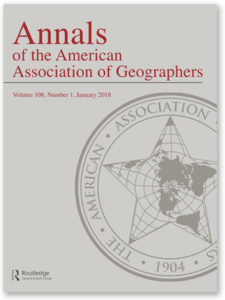 The Annals of the American Association of Geographers is seeking contributions for a Special Issue on the topic of Networks to be published in 2024.
The Annals of the American Association of Geographers is seeking contributions for a Special Issue on the topic of Networks to be published in 2024.

